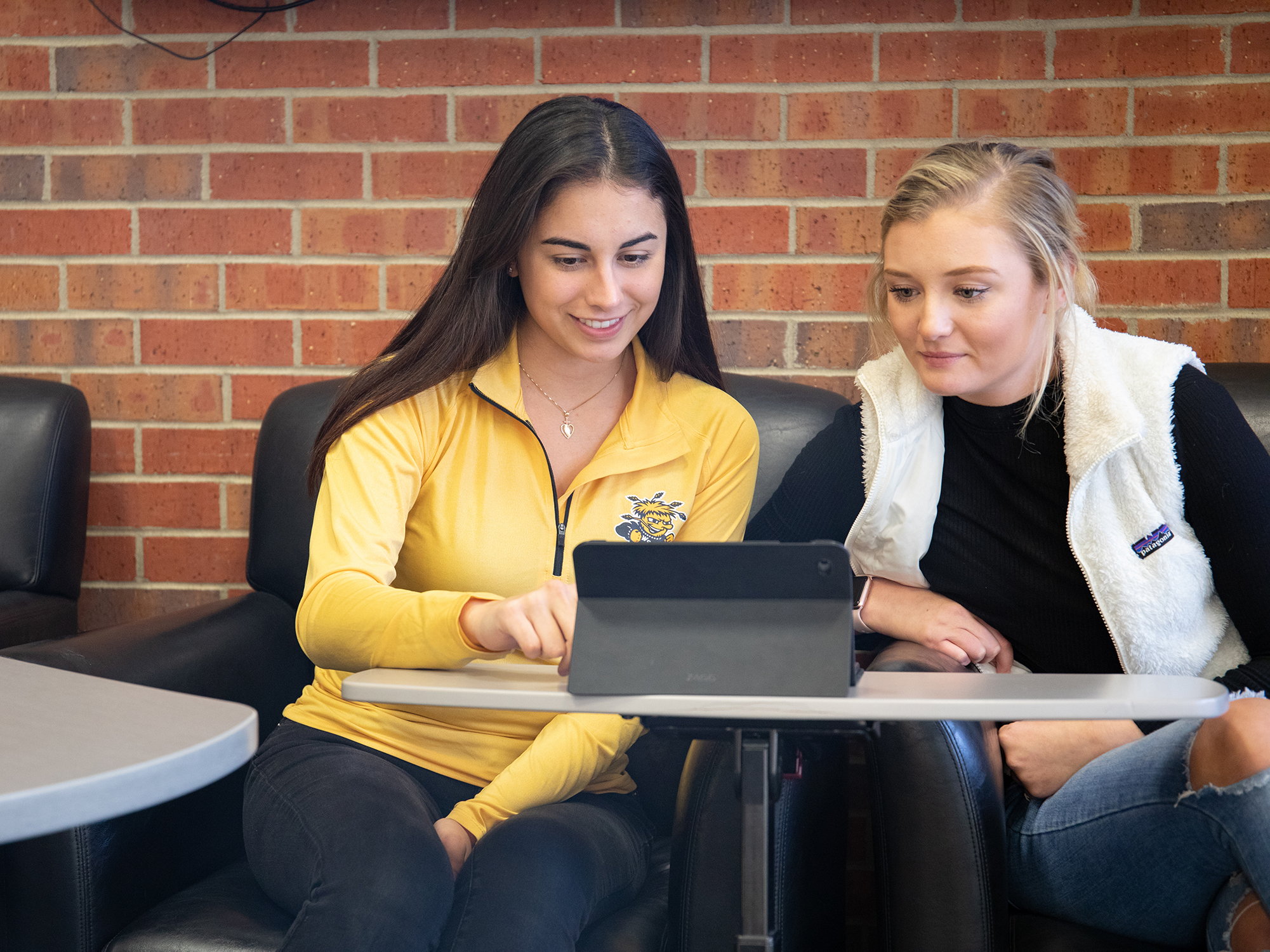After months of hard work from Wichita State faculty members Carrie Dickison and Maria Sclafani, the Open Alternative Textbook committee approved English 102 for Open/Alternative Textbook (OAT) course designation. Starting in fall 2021, Wichita State students will no longer have to buy textbooks for English 102.
OAT course designations are part of the OAT Initiative, which is designed to advance the use of freely available educational resources and texts in Wichita State classes and decrease the financial burden of textbook expenses on students. Classes with an OAT course designation have a $10/student course fee, which is split between the department offering the course and the OAT grant program, which provides grants to faculty to write or curate their own texts to be contributed as OER.
Sclafani, coordinator of library instructional services and assistant professor at Wichita State, has spent a lot of time researching and locating resources that can be used in the English 102 OAT designation. Sclafani said the COVID-19 pandemic has exacerbated a lot of existing issues in higher education, such as the high costs of textbooks, and accessibility issues with course materials.
“Because of the pandemic, a lot of college students are facing housing and food insecurity,” Sclafani said. “Something the university can do to help is eliminate textbook costs to alleviate the financial burden on our students.”
“Graduate teaching assistants (GTAs) utilize the textbook to teach, and when students don’t have their textbooks, they don’t do well in the class,” Sclafani said. “Ultimately, we hope that having the open-access resources will allow the students to learn a lot better and the GTAs to be more effective teachers.”
Carrie Dickison, assistant director of the writing program, said that when researching open access resources, her goal was to make sure the texts used would provide a foundation not only for the students enrolled in the courses, but also the graduate students teaching the courses.
“If the students buy their English textbooks new, it costs the students about $150,” Dickison said. “Now, it will be significantly less to be able to access all the open resources available.”
Dickison is excited for GTAs to be able to modify and adapt their classes the way they see as most effective.
“GTAs can have more flexibility now. They can supplement classes with additional readings, and they can more easily use these kinds of adaptations and changes to fit their own teaching strategies.”
Dickison said she is most looking forward to having the English 102 curriculum align better with the English 101 curriculum so that the transition between the two is smoother. She is also eager to see how the open alternative textbook works out in the end.
“The first time you make a change, there are going to be hiccups and adjustments that are going to be made. You can anticipate the challenges, but that doesn’t mean you’ll be able to see all the challenges coming,” Dickison said. “I’m excited to see how it works and to see what kinds of issues come up that we will need to address.”


 Courtesy
Courtesy